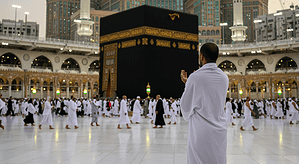
Can Umrah Travel Deepen Your Faith?
October 12, 2025 No Comments
Umrah is more than a journey; it is a personal encounter with one’s faith. While…

Home / Footcare for Pilgrims: Surviving Miles in Sandals
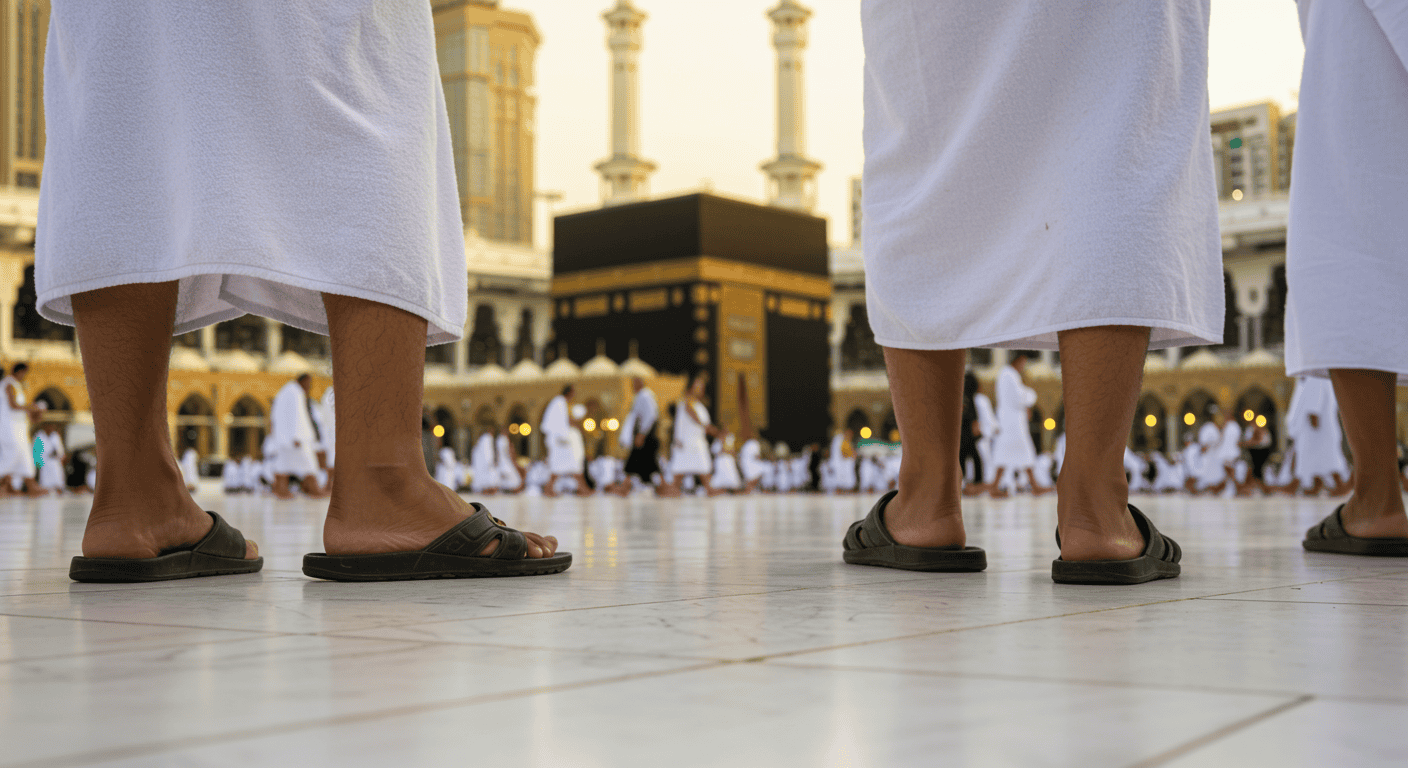
Every year, millions of Muslims travel to Makkah and Madinah for the sacred journeys of Hajj and Umrah. These pilgrimages involve long hours of walking, standing, and performing rituals under the heat of the Arabian sun. Among all the physical challenges pilgrims face, foot pain is one of the most common. Since most of the journey is performed in open sandals, taking proper care of your feet becomes a crucial part of preparation and survival during the pilgrimage.
Feet carry the weight of the journey—literally. Whether you are walking between Safa and Marwah, circling the Kaaba during Tawaf, or navigating crowded streets, your feet endure continuous strain. Without proper care, this can lead to blisters, swelling, infections, or even serious injuries. This blog will guide you through everything you need to know about footcare for pilgrims, including practical advice, Islamic perspectives, and helpful insights for those traveling with Easter Umrah Packages to keep their feet healthy throughout the sacred journey.
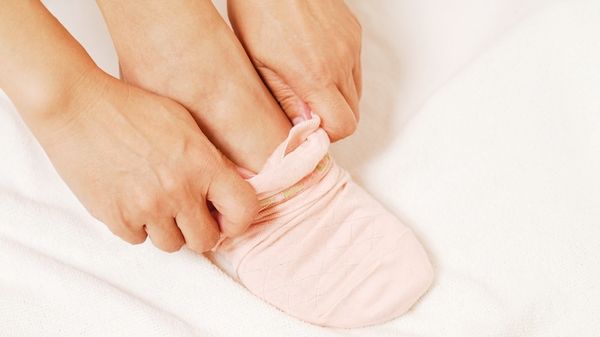
Footcare for pilgrims refers to the practice of maintaining the health, hygiene, and comfort of your feet before and during Hajj or Umrah. Since pilgrims spend long hours walking across marble floors, rough pavements, and occasionally uneven terrain, feet are under constant pressure. Proper footcare ensures that blisters, dryness, cuts, or infections do not disrupt the experience.
The focus of footcare goes beyond comfort. It also preserves your ability to complete all rituals without unnecessary pain. For many, Hajj and Umrah are once-in-a-lifetime opportunities. Maintaining foot health allows pilgrims to focus on their worship instead of being distracted by discomfort or injury.
In Islam, cleanliness and care for the body are acts of worship. The Prophet Muhammad (peace be upon him) emphasized hygiene, including washing the feet regularly during wudu. This shows that caring for your feet is not just practical but spiritual. A pilgrim’s feet carry them toward forgiveness and renewal, so keeping them healthy is part of honoring this sacred journey.
Practically, footcare allows pilgrims to remain mobile and comfortable. Long hours of walking in the heat can cause fatigue or dehydration, and even a small blister can turn painful. Proper preparation before leaving home and consistent care throughout the journey make a major difference in your endurance and comfort.
Pilgrimage involves extensive walking—sometimes over ten miles a day—often in sandals that leave parts of the feet exposed. Many pilgrims underestimate how quickly minor foot problems can worsen in such conditions. The hot marble floors of the Haram, crowded streets, and long waiting times can create the perfect environment for discomfort or injury.
Ignoring footcare can lead to swollen feet, cracked heels, fungal infections, or painful blisters that make performing rituals difficult. In extreme cases, untreated infections can require medical attention, interrupting the spiritual experience. Therefore, footcare is not a luxury—it is a necessity.
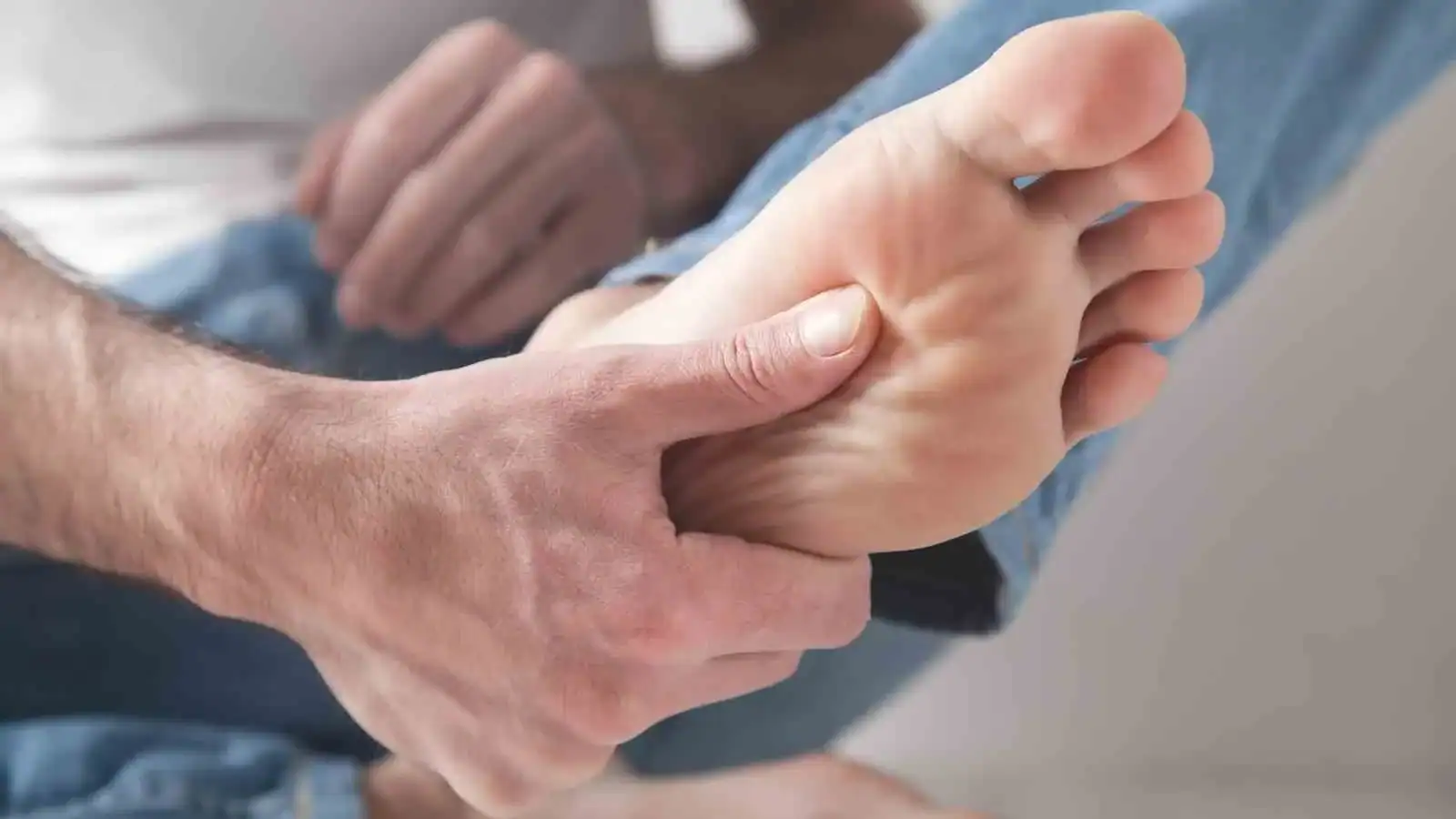
During Hajj and Umrah, pilgrims most commonly suffer from blisters, sore muscles, and cracked heels. These are caused by long walks, friction from sandals, and heat exposure. While they may seem minor, such issues can become serious when neglected.
Other common problems include toenail pain, fungal infections, and swelling. These conditions develop due to humidity, inadequate footwear, or insufficient cleaning. Addressing them early through proper care and hygiene helps prevent further complications.
Selecting suitable sandals or shoes is the foundation of footcare. Pilgrims often spend hours walking, so comfort and fit matter more than style. For men, the sandals must leave the ankles and top of the feet uncovered in accordance with Ihram requirements. For women, any modest, comfortable footwear that protects the feet and provides support is allowed.
Good sandals should have cushioned soles, proper grip, and breathable materials. Avoid cheap or tight sandals that cause friction or pressure points. Trying out your footwear before traveling ensures they fit well and prevent blisters later.
Footcare begins before you even leave for Makkah or Madinah. Preparing your feet ensures they are ready to handle the demands of the pilgrimage. Start by trimming your nails properly to avoid ingrown nails or injuries. Moisturize regularly to prevent cracks, and wear your sandals for a few weeks to get used to them.
It is also beneficial to walk daily before the trip to build stamina. Conditioning your feet helps you adapt to the long walks ahead. If you have any medical issues like diabetes or chronic foot pain, consult a doctor before traveling to avoid complications.
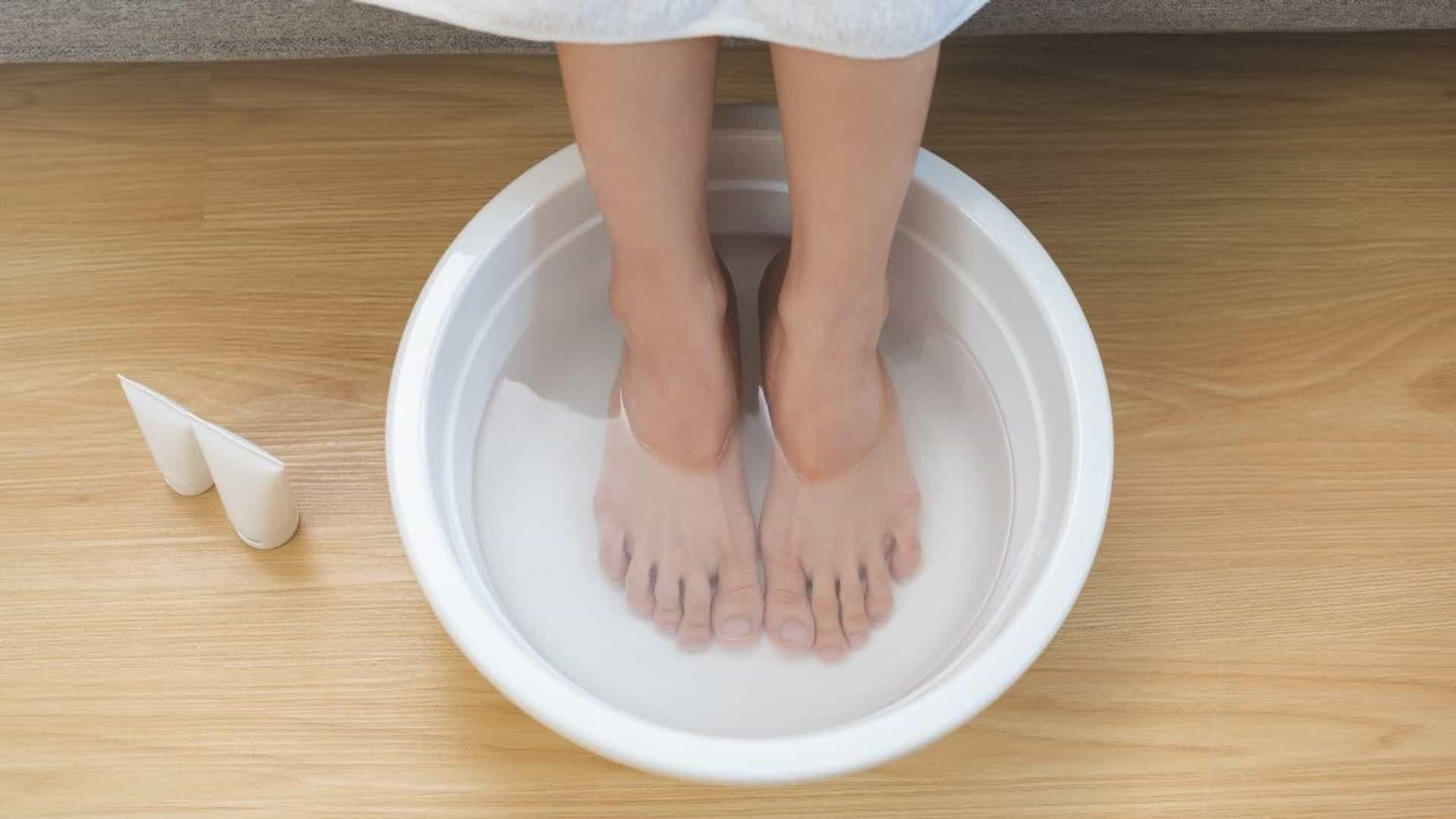
Maintaining cleanliness is vital during Hajj and Umrah. Feet are exposed to dust, sweat, and heat, which can create discomfort and odor if not cleaned regularly. Washing your feet frequently and keeping them dry prevents bacterial and fungal growth.
Using unscented wipes or plain water to clean your feet while in Ihram is recommended. Avoid scented creams or lotions during Ihram, as fragrance is prohibited. Always dry your feet thoroughly, especially between the toes, to prevent infections.
Blisters are one of the most common foot problems during pilgrimage. They form due to friction between your skin and sandals. If you notice redness or tenderness on your feet, that is an early warning sign of a blister. Address it immediately by covering the area with a bandage or padding.
If a blister forms, keep it clean and covered. Do not pop it, as that increases the risk of infection. Seek medical help if it becomes painful or inflamed. Preventing blisters is easier than treating them, so always wear properly fitted sandals and clean socks if permissible.
Walking long distances on hot surfaces can cause dry, cracked heels. These can become painful or even bleed if ignored. Regular moisturizing before entering Ihram and after completing rituals helps keep the skin soft and healthy.
During Ihram, use plain, unscented petroleum jelly or similar non-fragrant alternatives if dryness becomes uncomfortable. Avoid walking barefoot on rough or hot surfaces whenever possible.
Swelling in the feet and ankles, known as edema, is common due to long hours of walking and standing. To reduce swelling, elevate your feet whenever you rest. Gentle foot exercises and massages also help improve blood circulation.
Staying hydrated is equally important. Dehydration worsens fatigue and can make swelling more severe. Drink enough water, and avoid sitting or standing in one position for too long. Pilgrims who plan their journey through well-organized Umrah Packages often find it easier to maintain proper rest and hydration routines. Small adjustments like wiggling your toes or rotating your ankles can make a big difference.
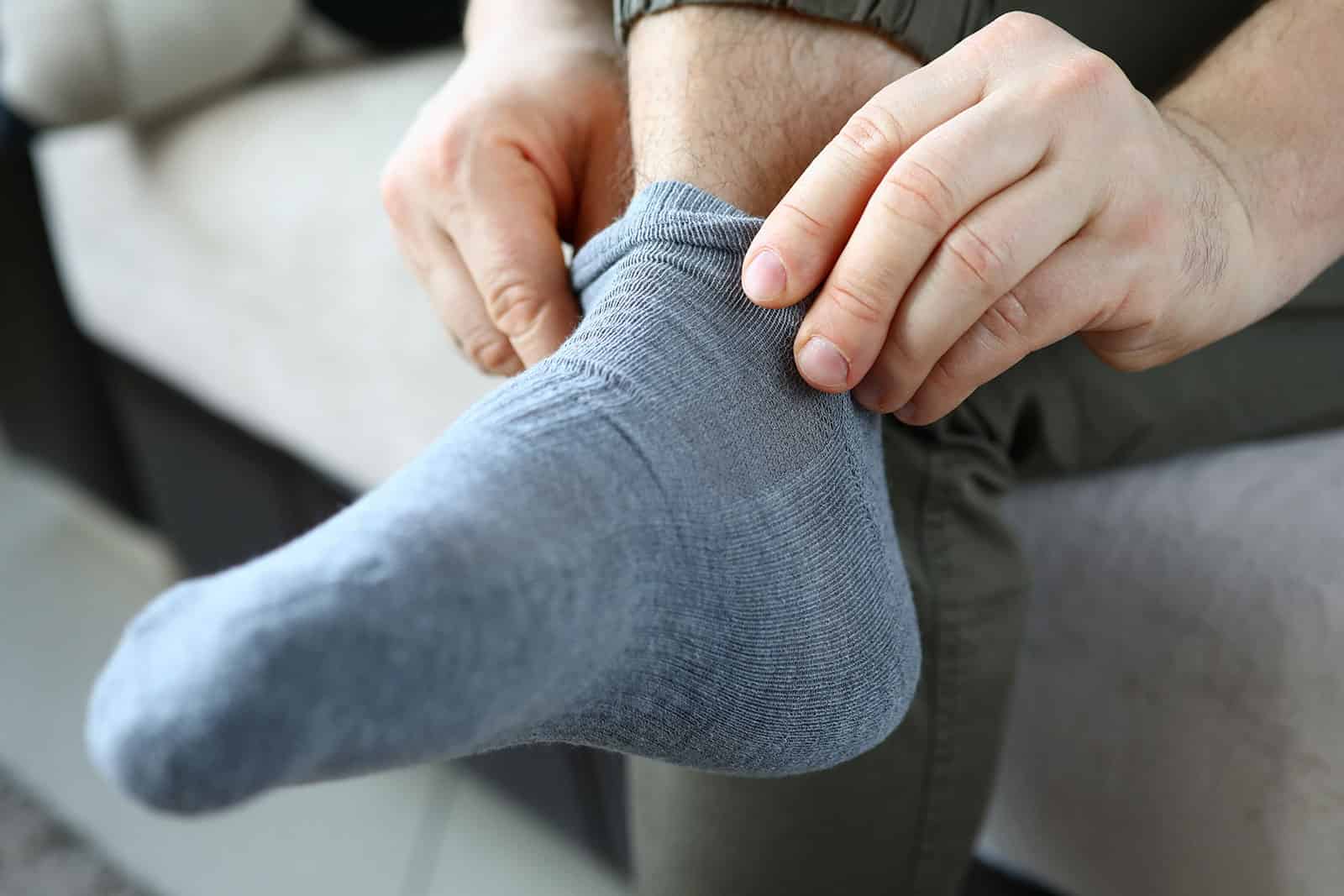
While men in Ihram cannot wear socks that cover the ankles, there are alternatives like open socks designed for Ihram that protect the soles while remaining compliant. Women can wear regular socks to protect their feet from dust, germs, and heat.
Wearing socks made from breathable cotton or moisture-wicking fabric helps keep feet dry and prevents blisters. Changing them regularly ensures hygiene, especially in humid or crowded conditions.
During the pilgrimage, infections can develop quickly due to humidity, minor cuts, or poor hygiene. Early signs include redness, itching, swelling, or pus formation. If these symptoms appear, clean the affected area immediately and apply a basic antiseptic.
If pain persists or the infection spreads, seek medical assistance from the healthcare centers available in Makkah or Madinah. Prompt care prevents small issues from becoming serious medical concerns that might interrupt your pilgrimage.
While in Ihram, certain restrictions apply, such as avoiding perfume and not cutting nails or hair. This can make regular footcare slightly challenging. However, cleanliness and hygiene remain encouraged. Pilgrims can wash their feet gently and use unscented products to keep them comfortable.
Understanding what is allowed helps you maintain foot health without violating Ihram rules. Preparing your feet before entering Ihram ensures fewer issues during the sacred state, allowing you to focus fully on worship.

Resting your feet is just as important as walking. After long hours of rituals, giving your feet time to recover helps prevent exhaustion and injury. Even short breaks during the day can restore strength and reduce soreness.
At the end of the day, elevating your feet for a few minutes helps reduce swelling and improve blood flow. Pairing rest with hydration and gentle stretching helps maintain stamina for the next day’s rituals.
Proper footcare enhances your comfort and endurance throughout the pilgrimage. Healthy feet allow you to perform rituals without distraction or pain, ensuring you stay focused on the spiritual essence of the journey.
It also prevents medical complications that could disrupt your pilgrimage. From a spiritual perspective, taking care of your body reflects gratitude toward Allah for the blessing of health. A comfortable pilgrim is a more devoted one, able to engage fully in worship and reflection.
When your feet are comfortable, your mind remains peaceful. Pain or injury often causes irritation and distraction, which can affect your patience and concentration during Hajj or Umrah. Proper footcare contributes to emotional calmness and spiritual focus.
Each step in pilgrimage symbolizes humility and devotion. Keeping your feet healthy helps you continue walking those sacred miles with gratitude, knowing that every step is a form of worship and closeness to Allah.
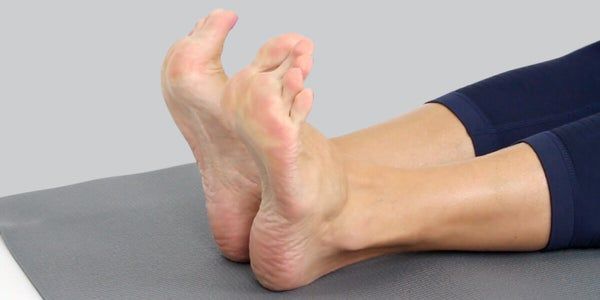
Simple foot exercises can greatly improve endurance and flexibility. Rotating your ankles, stretching your toes, and rolling your feet over a small bottle or ball can relieve tension and improve circulation.
Doing these exercises in your hotel room before and after rituals helps reduce stiffness. Consistent stretching keeps your muscles flexible and prevents cramps, especially after long hours of walking.
Nutrition plays an indirect but important role in foot health. Eating a balanced diet rich in vitamins, calcium, and potassium helps strengthen muscles and bones. Foods like bananas, dates, milk, and leafy greens aid in reducing cramps and swelling.
Hydration also plays a major role. The intense heat of Makkah and the physical demands of the pilgrimage can quickly lead to dehydration, affecting circulation and causing fatigue in your feet. Drinking water regularly supports endurance and overall well-being.
Walking barefoot or in open sandals exposes the feet to extreme temperatures. The marble surfaces of the Haram can become hot during midday, causing burns or discomfort. Walking during cooler parts of the day, such as early morning or evening, helps avoid this issue.
Carrying a small towel or wet wipes can help cool your feet when needed. Staying aware of the environment and adjusting your pace according to heat levels ensures safety and comfort.
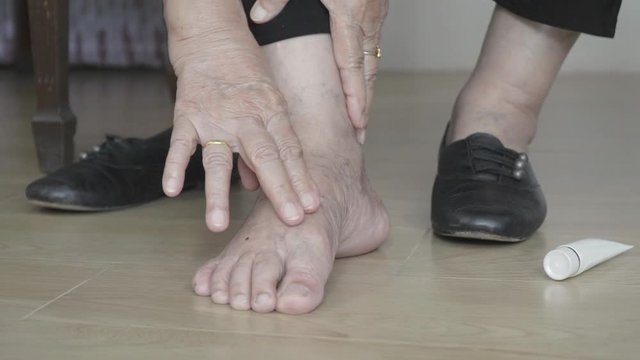
Elderly pilgrims and those with diabetes must pay extra attention to their feet. These individuals are more prone to injuries and infections. Even small cuts can become serious if left untreated. Regular inspection of the feet each day helps catch any issues early.
Wearing soft, cushioned sandals and maintaining hygiene are essential. Diabetic pilgrims should carry basic medical supplies and consult their doctors before travel for personalized care advice.
A small footcare kit can make a big difference during Hajj or Umrah. It should include unscented wipes, antiseptic cream, bandages, petroleum jelly, and spare sandals. Keeping these items in your bag ensures you are always prepared to handle any minor foot problems.
Having your own supplies saves time and helps you act quickly if a blister or cut occurs. It also reduces the risk of using unfamiliar products that might irritate your skin.
With constant walking and sweating, foot odor is a common issue. To prevent it, keep your sandals clean and your feet dry. Washing your sandals regularly with water removes dirt and bacteria.
If permissible, sprinkle a small amount of unscented talcum powder to keep feet dry. Proper ventilation also helps reduce odor, so avoid wearing closed footwear for long hours unless necessary.
Many pilgrims return from Hajj and Umrah with stories about how foot pain challenged their patience and strength. Those experiences teach valuable lessons about preparation and self-care. Consulting experienced Umrah Travel Agents can also help future pilgrims learn from others’ journeys and avoid the same mistakes through better planning and guidance.
Taking time to reflect on the physical and spiritual aspects of the pilgrimage enhances the experience. Every step becomes a reminder of perseverance, gratitude, and humility before Allah.
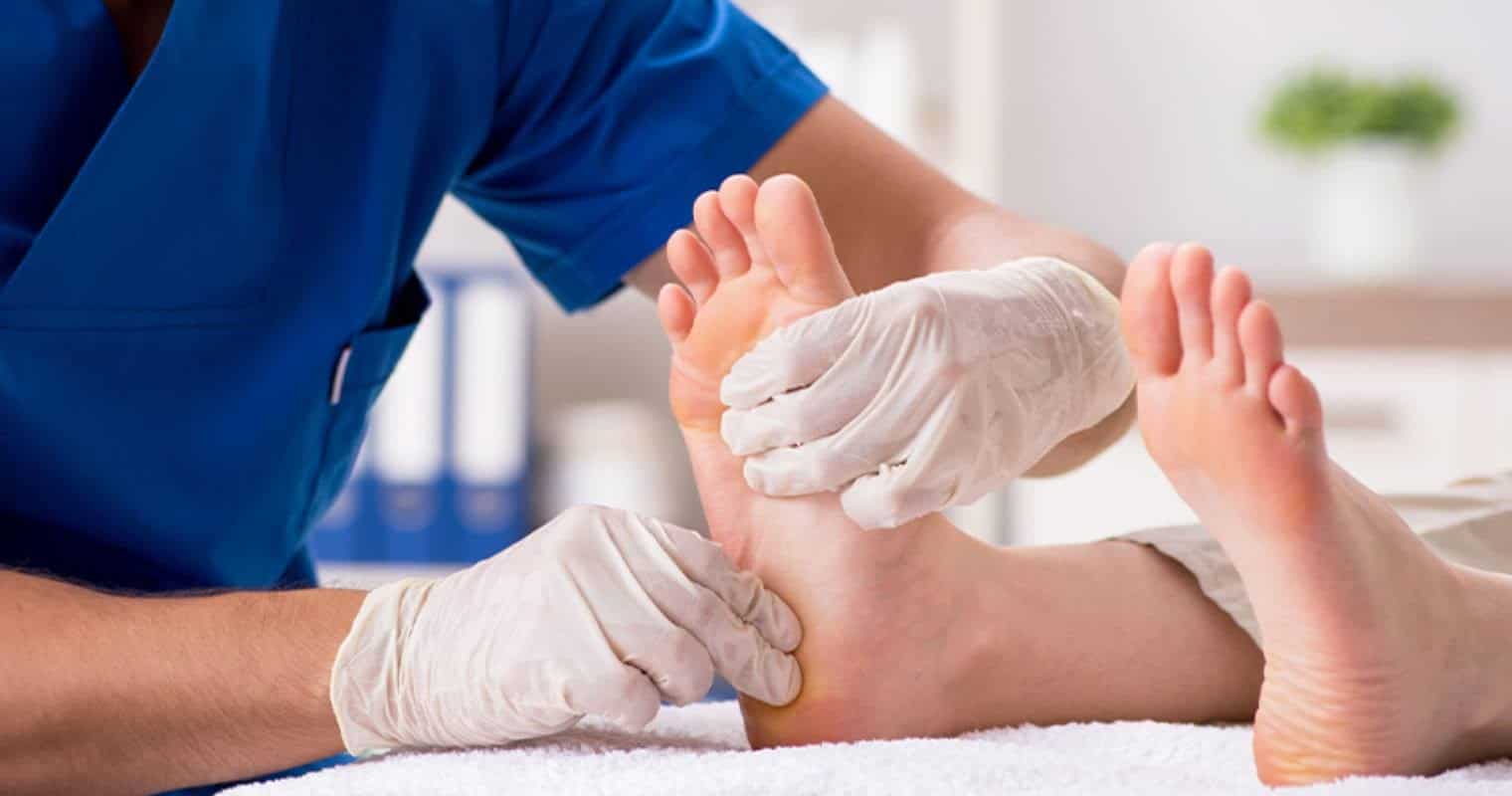
Even after returning home, continuing footcare remains important. Your feet may need recovery time after weeks of walking. Gentle massages, moisturizing, and rest help them heal completely.
Maintaining good foot health after Hajj or Umrah keeps you ready for future acts of worship and daily life with renewed strength. It also reminds you that caring for your body is part of gratitude for the health Allah has given.
Footcare highlights how physical readiness supports spiritual growth. When your body is cared for, your worship becomes easier and more focused. Each act of self-care reflects an intention to serve Allah with your best effort.
Recognizing the link between body and soul helps pilgrims view footcare not as a burden but as a form of devotion. Healthy feet carry you through the sacred journey with patience and peace.
Feet are the foundation of every pilgrim’s journey. They carry you through every ritual, every mile, and every moment of devotion. Taking care of them ensures that you can complete your pilgrimage comfortably, safely, and with a heart focused on worship.
Simple acts like choosing the right sandals, maintaining cleanliness, and allowing rest can transform the experience. In the end, footcare is more than physical—it is a sign of respect for the blessing of health and a step toward completing your pilgrimage in peace and gratitude.
Our curated content will ensure you’re well–prepared and inspired every step of the way.